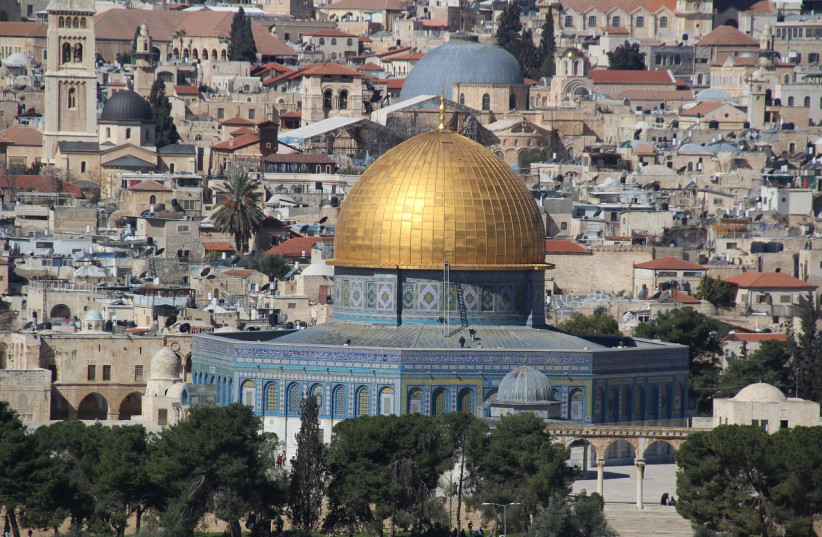The United States slammed as “unacceptable” National Security Minister Ben-Gvir’s visit to the Al-Aqsa Mosque compound on the Temple Mount on Thursday, to mark the annual Tisha Be’av fast.
“We reaffirm our long-standing US position in support of the historic status quo at Jerusalem’s holy sites,” State Department deputy spokesperson Vedant Patel told reporters in Washington.
“Any unilateral action or rhetoric that deviates or jeopardizes the status quo is completely unacceptable,” Patel emphasized.
The US Embassy in Jerusalem issued a similar statement and US Ambassador Robert Wood echoed his country’s displeasure in a speech he delivered to the United Nations Security Council.
“This holy place should not be used for political purposes. We call on all parties to respect its sanctity,” he said.

Both Wood and Patel also underscored their respect for Jordan’s special custodial role on the Temple Mount.
Ben-Gvir’s visit also sparked condemnations from the Palestinian Authority as well as Arab countries such as Jordan, Egypt, Saudi Arabia and Turkey.
Nabil Abu Rudeineh, the spokesperson for Palestinian Authority President Mahmoud Abbas said that the visit was a “provocation” against “the feelings of Muslims around the world, and a blatant challenge to the Palestinian people” and that he wanted it to lead to more tension and violence, according to the Palestine News Agency WAFA.
"This place - this is the most important place for the people of Israel - where we have to return to show our governance,”
National Security Minister Itamar Ben-Gvir
Ben-Gvir said it was particularly important for him to visit the site where the former Jewish Temple stood, particularly on the day where Jews around the world mourn its destruction 2,000 years ago.
“This place – this is the most important place for the people of Israel – where we have to return to show our governance,” he said.
His walk across the Al-Aqsa Mosque compound together with the visit there on Thursday of over 2,000 Jews sparked fear in the global community that Israel was violating the status quo that regulates the religious site, which is the holiest one to Jews and the third holiest to Muslims.
Since 1967, Muslims have had the sole right to pray on the Temple Mount, which they call al-Haram al-Sharif, while members of all other faiths including Jews, can visit.
Prime Minister Benjamin Netanyahu has sworn that he is committed to preserving the status quo.
There is, however, a growing movement in the Israeli Right, including among politicians such as Ben-Gvir, to allow for Jews to also pray at the site, particularly in light of the drive by the Palestinian Authority to disavow all Jewish connections to the Temple Mount.
Ben-Gvir’s visit to the mount, his third since taking office in January, reignited that fear. It stoked additional tensions with the Biden administration, particularly at a time when it was already frustrated with Netanyahu’s government over the passage of the first major judicial reform legislation, which limits the review power of the courts.
The passage of the legislation, which was met with major protests by its opponents, has divided the nation. Ben-Gvir used his trip to issue a call for unity.
“On this day, in this place, it is always important to remember – we are all brothers,” the minister said. “Right, Left, religious, secular – we are all the same people. And when a terrorist looks [at us], he does not differentiate between us. Unity is important, love of Israel is important,” Ben-Gvir said.
Jordan Foreign Ministry spokesperson Sinan Al Majali warned Israel of the “consequences of approving extremists storming Al-Aqsa.”
Egypt said “Israel must stop these provocative actions that only lead to more tension in the area.”
